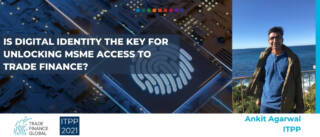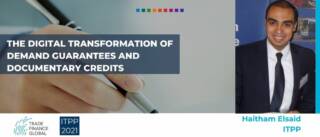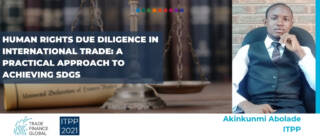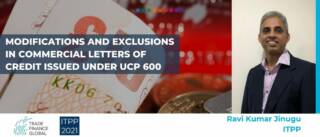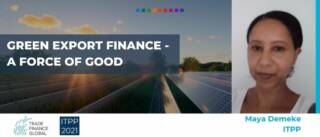To better understand the larger picture of ‘Embracing Equity’, TFG’s Brian Canup spoke to Natalia Clements, senior trade finance specialist at Swiss Re Corporate Solutions, who shared her experiences as a woman in the insurance industry, the challenges she has faced, and the importance of embracing equity in the workplace.
2022 was a year of seismic and rapid changes for international trade and trade finance. War in Europe, COVID-19, and inflation created unimaginable disruptions in the industry. This dynamic phase is creating opportunities and gives way for new entrants in the ecosystem.
In most countries, small and medium enterprises are important contributors to economic welfare. This is the main reason why a digitalized trade system can open more opportunities to further SME growth.
The magnitude and pressure around climate change and the United Nations (UN) agenda can give an opportunity to make a joint effort to transform supply chains more sustainable.
AI, internet of things, robotics – what do they mean for trade finance, particularly in the efforts to combat trade-based money laundering?
In a world of shrinking supply chains and digital connectivity, the concept of identity is continuously evolving. Is digital identity going to be the panacea to the age-old problem of MSME access to trade finance?
The notion of ‘debt-trap policy’ has elicited much debate about whether entities that deliberately flex their financial muscle to exert dominance over desperate countries exist. This work highlights its meaning, the actors, and its effects on trade and economic development.
Commodity trade finance fraud and losses, along with trade finance digitization, have emerged as common themes in trade finance recently.
The digital transformation of the banking operations of guarantees and documentary credits to shift from the paper-based and labour-intensive models to a digital trade ecosystem.
TFG, LIBF, FCI and EBRD, are pleased to announce the bronze and runner-up articles from this year’s cohort of the International Trade Professionals Programme/
This article posits that human rights due diligence is the most practical approach to addressing climate change concerns and achieving other sustainable development goals.
Since the inception of UCP 600, trade finance professionals, in particular, the letter of credit community, have been discussing the need for and consequences of modifications and exclusions to the rules in commercial LCs issued under UCP 600.
Hundreds of companies are building the foundations of exemplary corporate climate action. The next decade will witness accelerating efforts to transform the economic system.
The latest IPCC report drives further urgency to ECAs’ plans to increase funding for green and sustainable deals and to rebalance portfolios with long-dated carbon-intensive assets
 Australia
Australia Hong Kong
Hong Kong Japan
Japan Singapore
Singapore United Arab Emirates
United Arab Emirates United States
United States France
France Germany
Germany Ireland
Ireland Netherlands
Netherlands United Kingdom
United Kingdom





